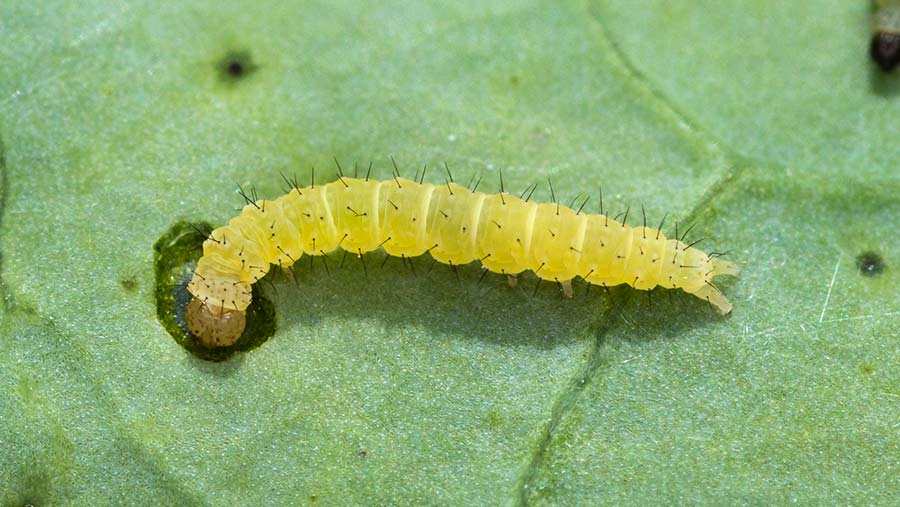Insecticide-resistant ‘super-pest’ now surviving winter
 Diamondback moth larvae © Blackthorn Arable
Diamondback moth larvae © Blackthorn Arable A new strain of the “super-pest” diamondback moth, which is already resistant to a class of common pesticides, is now also surviving the winter.
Moths arrive annually from continental Europe and are often described as a “super-pest” due to their rapid life cycle and insecticide resistance.
But now experts from Rothamsted Research and the AHDB have found pyrethroid-resistant moths overwintering on swede crops grown under insect netting, rather than being killed off by the cold.
See also: Persistence is key to profitable spring oilseed rape
The pests, which feed almost exclusively on brassicas, cause cosmetic damage that can result in the loss of up to 100% of the crop. However, they are also a threat to both winter and spring oilseed rape.
Growers are being asked to submit samples of the moth if they see them during the winter or in spring – when numbers traditionally rise – to aid the development of control strategies to manage the pest.
AHDB knowledge exchange manager Dawn Teverson said: “It’s important that brassica growers are aware of this pyrethroid resistance and plan their crop protection programmes accordingly to treat against diamondback moths.
“If pyrethroids are used, not only does this now fail to control diamondback moths, but it could also kill beneficial insect predators that would naturally help control the pest, further exacerbating the problem,” added Dr Teverson.

